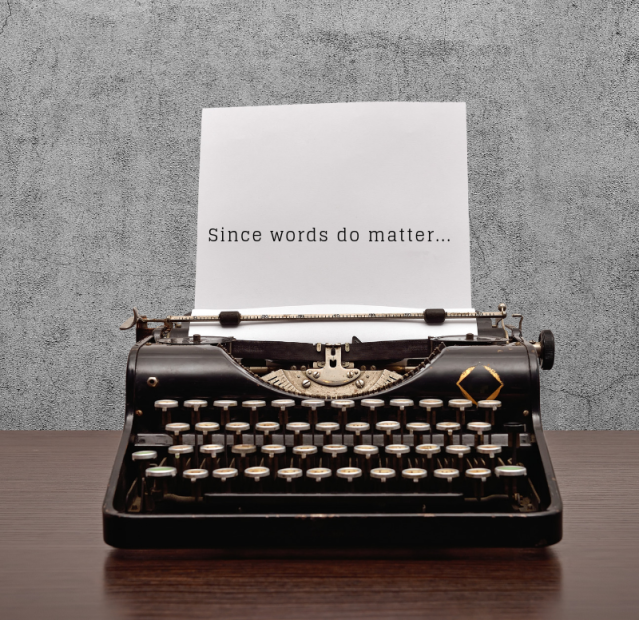
I won’t but I could. I absolutely could give you their names. I could give you their names because I remember those moments clearly. Not that there aren’t other similar moments, too numerous to count, that have also come to pass. But I specifically remember those that contained that phrase: “Go back to where you came from!”
When I was in third grade my family moved from Puerto Rico to a rural part of the Sunshine State. This move was one that held a great deal of sacrifice for my parents, something I have only thought about as an adult; but a move that I know was done with the desire to offer me (an only child at the time) a better life filled with greater opportunities. Of the few things I remember about that moving process is taking a test to be allowed into the non-ESOL class— something that my parents advocated for. I remember being really worried during the stressful examination when I couldn’t remember the word trash can as well as when I discovered that the clock that you wear on your wrist is in fact called a watch. Despite these two hiccups I passed, likely given the fact that we had temporarily lived in Florida for a year in my kindergarten year, and my English had stuck.
This town, from which my sister and I eventually graduated high school and where my parents still live, is one that has had a deep impact on my understanding of race, ethnicity, culture and identity.
There I learned about rodeos, pick-up trucks and gained an appreciation for country music.
It was in this town that I had some of the best teachers (all Anglo, with the exception of a handful) I could have hoped for – ones who saw things in me that I didn’t see in myself, and who let me be my quirky, oft shy self.
There I also came to the realization that people treated others differently because of the color of their skin and the language that they spoke – a fact which coincided with my learning of and great love for MLK and other black poets and writers.
There I learned that though specifically as Puerto Ricans we were US Citizens, this fact often didn’t mean much, if anything, to those that my parents interviewed for, especially when they couldn’t hide their ‘foreignness’ given their accents. I saw the tremendous gifts my parents possess and their admirable work ethic.
There I learned what it was like to be considered ‘other’ – and I learned about the solidarity that comes from that title, and in my case and context it came with the African American community.
There I intimately experienced other cultures whose primary language was also Spanish. At the time of my upbringing the Latino/a population was predominantly Mexican with many families who worked in the local agriculture and construction. It was here that I garnered a deep love for my Central and South American siblings.
Yes, it was there that I was told the phrase I’ve never forgotten: “Go back to where you came from!” Along with this taunt I remember being teased about whether I had come here on a raft, and called other derogative terms used for those who cross rivers.
I have traveled years and miles from this town. I have had the privilege of incredible opportunities in my education, learning and personal formation. I have had the fortune of visiting different countries, and within this country working with diverse groups of people – diverse in geographical background, ethnicity, gender, age, etc. Still, I have continued to learn afresh the truths I gleaned in this secondary hometown – the good, the bad, and the ugly.
As I shared at a church denominational gathering recently, it is only in the recent past that I have realized how I have come to internalize the spirit of these words on my life. Not only those in my 8thgrade Algebra class but those spoken in the halls of churches I have served. That even in my slight avoidance of publicly speaking personally on such topics there was the subconscious understanding that part of my identity as a Latina was a problem or obstacle to be overcome.
Still I’m regularly told: “Don’t speak of such things; they are divisive. The more you talk about them the more you bring up our differences.” “Don’t take it seriously, they don’t know any better; it’s just part of their upbringing.” “Don’t call yourself Latina; you’re talented and don’t have to play the race card.” “Don’t talk about being Latina or you’ll never be seen as anything but that.”
And then I hear and read this phrase reach national and international news: Go back to where you came from!
I have a love-hate relationship with writing. I haven’t written on here in years. Part of it is that in some ways these past few years I have felt as if I had come to the end of words. What could my words matter anyway? What could my grief matter? How does the impact of our national rhetoric on me make a difference? But part of what I have remembered upon hearing this childhood phrase again is that: Words do matter.
As I hope to have communicated, the racial tensions in this country have not been new to me. I say that aware of my particular privilege as a light-skinned Latina born with US citizenship, and one with a decent command of the English language. And still, the past several years have lived into what Lin-Manuel Miranda writes in his musical ‘In the Heights’: “Racism’s gone from latent to blatant!”
I think I also haven’t written for a while because I have been in some ways afraid. What I have known to be true for so many of my black siblings and other siblings of color is now public, and we haven’t handled it well. Speaking vulnerably on such things rarely goes well. In the past few years I have had some of the most painful conversations around the topic of race. The ones that have hurt the most have been with those I thought knew better and whose ignorance and unwillingness to dialogue have surprised me in the most painful of ways. I have also grown weary of those with the greatest of privileges who happily benefit from their public ‘wokeness.’
Yet I’m not a politician, I’m a pastor – and right or wrong, I’ve never felt compelled to even address a politician by name in a sermon, though I have certainly addressed the words and actions of such. I personally hope to have no political agenda other than the agenda of a transforming love that comes with my understanding of following Jesus.
Since words do matter…. here are mine.
I’m worried.
I’m worried for the little girls and boys who continue to hear those phrases said to them and of them. I worry about how they might internalize them. I worry about the boys and girls who hear those phrases shouted at others. I worry that their parents won’t help them understand how wrong and bad those words are. I worry that they will later say those things. I worry about those who have already internalized these – giving or receiving them – and how their souls are hindered from the freedom that is found in the understanding of God’s deep love for all people or all genders, ages, nations, races, cultures, orientations, abilities and beyond. I worry about a lot of things.
I worry because I am beginning to see that we have forgotten that words matter and that they in fact shape the reality that surrounds us. Words like the ones we regularly hear spoken from those in the highest office of power in our country give us permission to objectify other humans. Words like this allow us to leave children uncared for at our borders and in homes next to our own. Words like this allow us to treat women as objects. As the Rev. Dr. William Barber II has said, “We Are In a Crisis — a Moral Crisis,” and I believe a spiritual crisis. That politicians would sell their souls for personal gain does not likely surprise many, but part of our crisis is that the Church, which is supposed to be a counter-cultural hope of the world, has been so complicit in word and deed as well as in lack of words and deeds.
As a part of the Church I ask for forgiveness for the ways that I have been complicit in silence, inaction and even in speaking words of harm. Under the conviction that words do matter — even my words — I commit to not taking words for granted.
Church-people especially, would you join me? I would love your company.
May we speak up when we hear those around us speak words that contribute to harm. May we speak truth to lies: that all are persons of dignity, that all are worthy of love, safety and care. That we can disagree, and often should, but that we can do so from a foundation of the sacredness of all persons.
Derogatory language is wrong. Words matter. Racism, prejudice, discrimination, or antagonism directed against someone of a different race based on the belief that one’s own race is superior is sinful and evil. Christian allegiance is first and foremost to the work of Jesus in the world: the work of proclaiming good news to the poor, freedom for the prisoners, recovery of sight for the blind — a work that sets the oppressed free and proclaims that God calls us to be at work with God in all of these ways (C.f. Luke 4:17-21).
May our words reflect these truths. May they be typed, written, spoken, shared, lived. May it be so.

